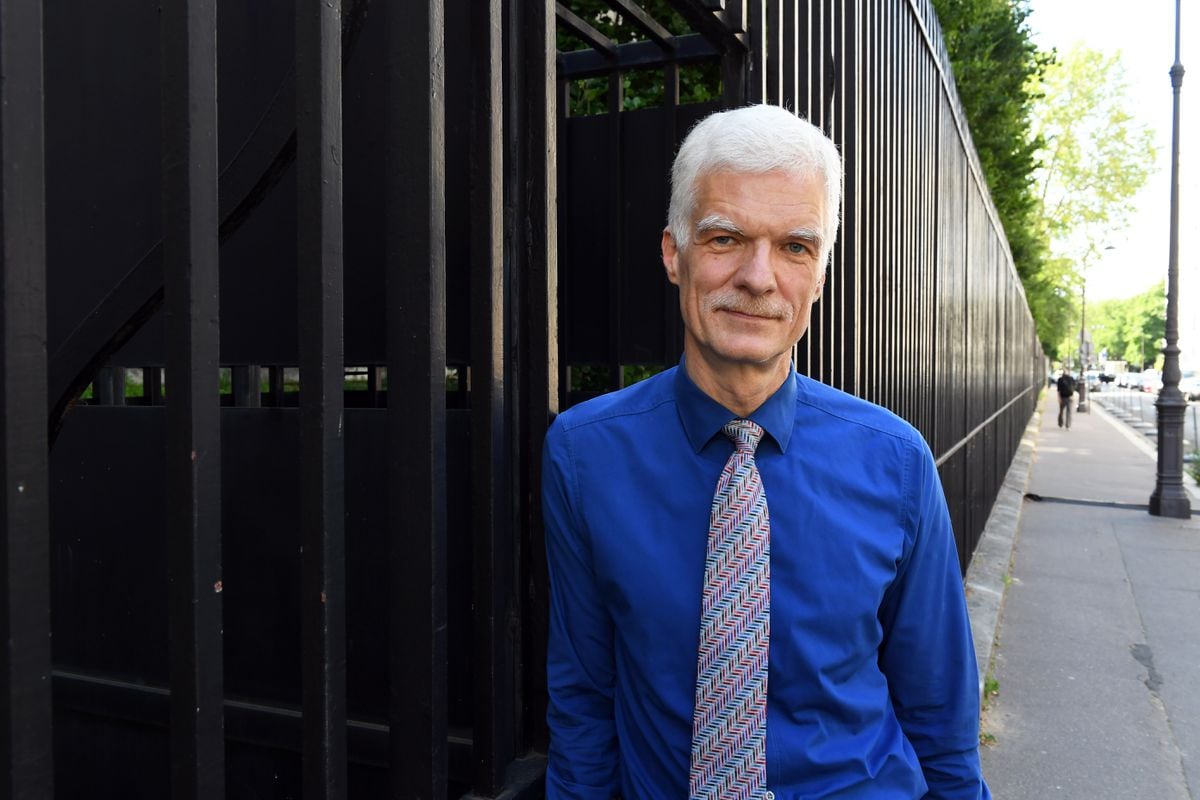Andreas Schleicher, director of education at the OECD and known as the father of PISA.eric Hadj
The German Andreas Schleicher (Hamburg, 59 years old) is known as the father of PISA, because he launched the educational diagnostic tests and is the director of that area at the OECD.
He knows the data perfectly, and politicians are always eager to know his recipes for improving schools, especially after the debacle of the last edition of PISA.
These are the advice that he gave remotely to a group of Latin American ministers convened in Madrid by the Varkerey Foundation.
The best teachers, in disadvantaged schools.
“Successful systems are very, very good at aligning resources with needs.
They attract the most talented teachers to the classrooms where there are the most challenges,” she recalls.
“In a State of Brazil
“They have done something really interesting, they have paired high-performing schools with low-performing ones and they help them by providing resources.”
The ratio of students per class does not seem very relevant.
“We often try to reduce class sizes because that makes parents and teachers happy, but it is not a very effective way to improve,” she defends.
“But if you invest in better professional development of teachers, in building professional communities, it has a very, very important impact,” she says.
Commit to early schooling.
The first years of a child's growth are vital for their
cognitive development, but also for their social and emotional development.
“For a three-year-old, empathy is a skill;
for someone in their 30s, a personality trait,” she argues.
That is why she believes that more economic resources must be put into that stage.
“We put less qualified people in those levels [of nursery school] and
we overinvest
in the education of later ages,” she warns.
“In many Latin American countries you pay tuition fees when the child accesses early childhood education, while university is free.
“That is not a good investment strategy.”
Learn other mathematics.
The physicist and mathematician remembers that the type of knowledge needed differs from two decades ago, when PISA was launched.
“Technology has digitized mathematical routines, but other things have become much more difficult.
If you want to understand climate change or a pandemic, you need to think in terms of probabilities, know exponential functions.
And those concepts are often not very present in school.”
He does not attribute it to covid: “There are structural limitations of our current educational systems.
But it is not inevitable.
“Singapore has gone from good to great during the pandemic.”
In his opinion, the teaching of mathematics has become “more superficial, students simply memorize and learn formulas and equations.
But teachers don't spend enough time getting them to think like mathematicians.
It is not so important to be able to calculate an exponential function, but rather you need to understand the concept.”
More information
Spain has few excellent students in PISA: “They do not usually connect and combine what they know”
Empower schoolchildren.
Students who have a greater growth mindset—believing that one's abilities and intelligence can develop over time—do better academically.
“In Estonia, students see the sky as the limit for their achievements.
They trust that when they work hard, their teachers will help them, and they will succeed.
In Albania, however, they often believe that their success depends on the intelligence they were born with.”
It also positively influences the results, he emphasizes, being a curious, persistent student and controlling emotions well.
More parental involvement.
She is concerned that parental involvement in school has decreased since 2018 (previous PISA).
“Parents are less proactive now (...).
Students became consumers, teachers became service providers, schools became some kind of social institution, and parents became clients.
We have lost working together in the development of students.”
An involvement in education that does not mean “spending all the time on homework, but rather the father sending his son the signal that he takes school seriously and values the authority of the teacher.”
For Schleicher, one of the mistakes made in education is believing that the school can compensate families.
“If your children play on their cell phones until midnight, then the teacher can do whatever he wants the next day, but teaching mathematics will not be very successful.”
He thinks there is a lot to learn from Vietnam, “where teachers teach parents why it is important for their children to learn math, even if they don't understand it.”
Fewer hours of screens in free time.
The German showed with a graph that in countries where 15-year-olds use technology more for recreational purposes, they learn less.
“Integrating technology into instructional processes can work well, but when you simply allow them to use their own devices, you are likely to see much worse results.”
In Turkey or Malaysia, 70% of schoolchildren feel anxious when they do not have their devices nearby and this stress results in much lower performance in mathematics.
"And that's not all.
They are less satisfied with their lives,” explained the OECD director.
Mobile phones outside of school.
With the data, Schleicher showed that it is not of much use for the center to set limits on the use of devices or for the teacher to do so in his classroom.
“Students don't pay much attention to what they're told about smartphones.
The only thing that is clearly linked to them being less distracted is the ban on phones at school.”
Make students autonomous.
The German considers that students have been turned into “passive consumers” in the classrooms because they have not been “motivated enough to learn on their own.”
You can follow EL PAÍS Education in
and
X
, or sign up here to receive
our weekly newsletter
.

